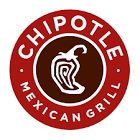Chipotle Mexican Grill, Inc.

Estimated electricity consumption
N/A
Countries of production presence
N/A
Chipotle Mexican Grill, Inc. is a well-known fast-casual restaurant chain that was founded in 1993 in Denver, Colorado. The company operates more than 2,800 restaurants across the United States, Canada, the United Kingdom, France, and Germany, and is known for its mission to serve food made from high-quality, sustainably-sourced ingredients.
As a company that values sustainability and environmental responsibility, Chipotle has made significant efforts to reduce its carbon footprint and promote decarbonisation. One of the ways it has done this is by investing in renewable energy. In 2019, the company signed a virtual power purchase agreement (VPPA) for 200 megawatts of wind power, which is expected to offset around 50% of the company's electricity usage. This is one of the largest corporate renewable energy deals in history, and it demonstrates Chipotle's commitment to reducing its carbon emissions.
In addition to investing in renewable energy, Chipotle has also implemented a number of other initiatives to reduce its environmental impact. For example, the company has set a goal to divert 50% of its restaurant waste from landfills by 2020, and it has implemented composting and recycling programs in many of its locations. It has also worked to reduce water usage by installing low-flow faucets and toilets in its restaurants, and it has implemented energy-efficient lighting and HVAC systems to reduce energy consumption.
Another way that Chipotle has promoted decarbonisation is through its corporate energy strategy. The company has set a goal to reduce its greenhouse gas emissions intensity by 50% by 2020, compared to its 2008 baseline. To achieve this goal, it has implemented a number of energy efficiency measures, such as upgrading its kitchen equipment and HVAC systems, and it has also invested in renewable energy.
One of the ways that Chipotle has invested in renewable energy is through corporate power purchase agreements (PPAs). In addition to its 2019 wind power PPA, the company has signed several other PPAs for solar and wind power in recent years. These agreements allow Chipotle to purchase renewable energy directly from the source, which helps to support the development of new renewable energy projects.
Overall, Chipotle's commitment to sustainability and decarbonisation is evident in its corporate energy strategy, its investment in renewable energy, and its efforts to reduce waste and water usage. By taking these steps, the company is not only reducing its environmental impact, but it is also demonstrating its commitment to social responsibility and sustainable business practices.
In addition to its sustainability initiatives, Chipotle is also known for its commitment to serving high-quality, sustainably-sourced food. The company sources many of its ingredients from local farmers and suppliers, and it has implemented strict standards for animal welfare and food safety. This commitment to sustainability and quality has helped to differentiate Chipotle from other fast-food chains, and it has helped to build a loyal customer base.
Despite its success, Chipotle has faced some challenges in recent years. In 2015, the company experienced a widespread outbreak of E. coli and other foodborne illnesses, which led to a significant decline in sales and a loss of customer trust. The company has since implemented a number of measures to improve food safety, such as implementing new food handling procedures and increasing training for employees. While these efforts have helped to restore customer confidence, the company continues to face competition from other fast-casual chains and changing consumer preferences.
In conclusion, Chipotle Mexican Grill, Inc. is a fast-casual restaurant chain that is known for its commitment to sustainability, decarbonisation, and high-quality, sustainably-sourced food. The company has invested in renewable energy, implemented energy efficiency measures, and worked to reduce waste and water usage in its restaurants. While the company has faced some challenges in recent years, its commitment to sustainability and quality has helped to differentiate it from other fast-food chains and build a loyal customer base.